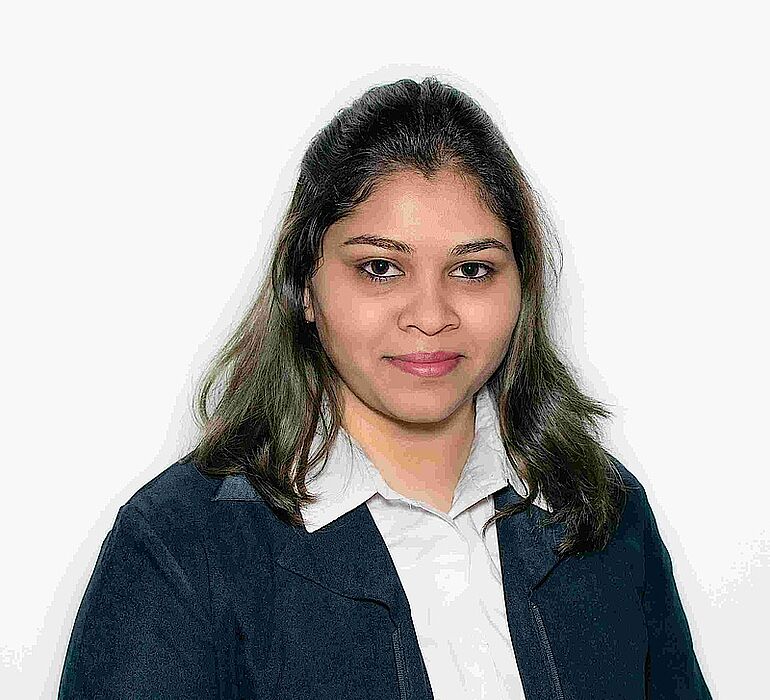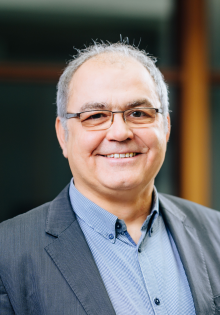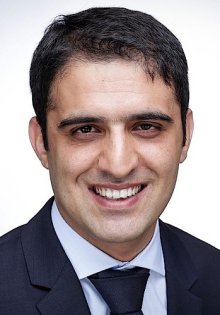Highly accurate, ultra-fast and energy-efficient data handling is essential in many applications, such as in communication systems, artificial intelligence or when working with precision measurement devices. The Deutsche Forschungsgemeinschaft (DFG, German Research Foundation) has now extended funding for the “MINTS” project (MLL-based Integrated THz Frequency Synthesizer) for a further three years with a funding sum of around 415,000 euros. In collaboration with the Fraunhofer Heinrich Hertz Institute (HHI) in Berlin, the project team led by Prof. Dr. Christoph Scheytt from the Department of Electrical Engineering and Information Technology and Head of the “Circuit Technology” department at the Heinz Nixdorf Institute at Paderborn University, and Prof. Dr. Martin Schell, Executive Director of the Fraunhofer HHI, is researching and developing synthesizers that can generate very precise and stable frequencies in the terahertz (THz) range. For context, these frequencies lie between infrared light and microwaves.
Efficient systems with low phase noise
Since the beginning of 2022, the scientists of the “MINTS” project have been dedicated to the investigation of electronic-photonic THz frequency synthesiser architectures. A THz frequency synthesiser is essentially a device that can generate signals at very high frequencies. “For a long time, a major challenge was the absence of effective technologies operating efficiently between the infrared and microwave frequency ranges. However, advancements in semiconductor and laser technologies have made THz technology much more accessible,” explains Scheytt. THz radiation can be used for imaging processes, such as in spectroscopy, for materials research, in security technology and in wireless communication with very high data rates.
The scientists are focused not only on generating high frequencies, but also working on stability, precision and controllability. A key challenge is phase noise, which affects signals in both electronic and optical devices, causing rapid fluctuations in the signal. “This can weaken signals or result in incorrect data transmission in communication systems,” explains project partner Schell. “Our aim is to achieve lower phase noise than any purely electronic THz frequency synthesizer, ensuring maximum signal stability,” adds Scheytt. Reducing susceptibility to phase noise improves signal quality and allows systems to operate more efficiently, leading to lower energy consumption and promoting the development of more sustainable technologies.
Initial successes and plans for phase two
In phase one of the project, the scientists succeeded in accurate modelling of the electro-optical phase detector which is the core circuit of the OEPLL synthesizer, characterising the additive phase noise in silicon photonics waveguides and driving amplifiers, phase noise measurement of THz signal, at among other things. Silicon waveguides are fundamental in silicon photonics and play a central role in optical signal transmission and processing on a microchip. The researchers use an electro-optical phase detector to measure the phase shift between an electrical and an optical signal. This device is used in various technical and scientific applications, for instance in communication technology, where optical data transfer systems need to be calibrated and monitored to ensure stable operation. In phase two of the project, the team will build on the success of phase one and work on further optimisations. ‘We are investigating an alternative discrete approach for generating THz signals from MLL, while also pursuing the hybrid integration of THz OEPLL using Silicon Photonics (SiPh) or Indium Phosphide (InP) PIC chip and a SiGe THz emitter chip, to facilitate a miniaturized THz source,’ says Vijayalakshmi Surendranath Shroff, scientific associate at the Heinz Nixdorf Institute. These technologies are used, for example, in modern data centres, Lidar systems, quantum computing and high-speed telecommunications.




